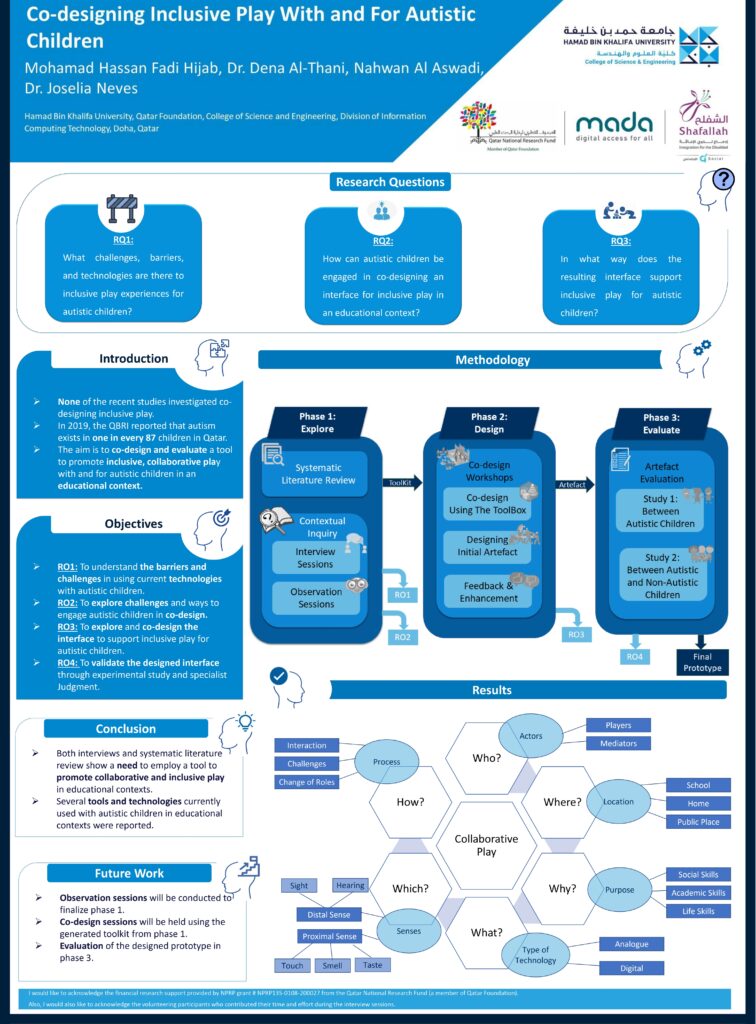Publication Date: September 27, 2022
By: Mohamad Hassan Fadi Hijab ; Dr. Dena Al-Thani ; Nahwan Al Aswadi ; Shaza Khatab ; Dr. Joselia Neves

This poster was presented at the 2nd International Conference on Visualization and Computer-Human Interaction 2022 (VisCHI).
The number of autistic children worldwide is recently increasing and often they exhibit difficulties in social and communication skills. Many design processes exclude autistic children due to concerns that their social and communication differences may act as barriers to participation, leading to calls for more inclusive design processes. Recent research has discussed co-designing with autistic children in several settings. However, none of the these studies had investigated the inclusive play field. In this PhD work, we aim to co-design and evaluate a tool to promote inclusive, collaborative play with and for autistic children in an educational context. The work is divided into three phases: Explore, design, and evaluate. In the explore phase, we conduct a systematic literature review to understand the current state-of-the-art of recent papers regarding co-design including autistic children. Also, a contextual inquiry contains interview and observation sessions to understand the challenges, barriers, and technology used with autistic children in inclusive and collaborative play. The result of phase 1 is a toolkit that will be used in co-design sessions. Phase 2 consists of co-design sessions with autistic children to develop an interface for collaborative and inclusive play. Lastly, phase 3 consists of two studies to evaluate the developed interface. The first study is to evaluate the interface within autistic children however the second study is to assess it with autistic and non-autistic children in an inclusive and collaborative play activity. So far, we have conducted a systematic literature review and interview sessions. The achieved results emphasized the need to facilitate collaborative, inclusive play in educational contexts given the different benefits it can have on enhancing children’s communication and problem-solving skills.
